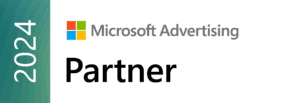 Small business owners usually feel crunched for time, and in these uncertain economic times, might also be hurting for help. It’s easy to see your social media presence as something to let slide. But before you do that, consider some of the benefits of social media for small businesses and how you can get them in the most time-efficient way possible.
Small business owners usually feel crunched for time, and in these uncertain economic times, might also be hurting for help. It’s easy to see your social media presence as something to let slide. But before you do that, consider some of the benefits of social media for small businesses and how you can get them in the most time-efficient way possible.
One of the key benefits is simple—it lets potential customers know that you’re still in business. Studies show that almost half of consumers use researching social platforms as part of their process for learning about new products.
So let’s say you’re a furniture store. You might not think there’s anything breathtaking to say about the couches in your display room, at least multiple times a week. But those posts keep your brand name top of mind for consumers and they confirm to those researching that you’re a vibrant business.
There’s also the benefit of gaining traffic to your website. In addition to the direct benefits website traffic offers. One client we work with generates upwards of 600 website sessions per month simply by posting photos to Pinterest.
There’s also a secondary benefit—if you run a pay-per-click advertising campaign, you can make use of remarketing tools to specifically target people who have previously visited your website. Getting someone to click on a link via social media gets them to the outer edge of your sales funnel. The pay-per-click program can bring them back to the site and further along in the funnel.
You can use a variety of metrics to measure how successful your social media efforts are. Referral traffic is the most obvious. And while we would caution against getting overly excited about every “like” you get, your “likes” and especially, your “shares” not only raise your visibility on the social platform, they’re also picked up by Google as a sign you’re producing valuable content. The search algorithms then reward you with a better position in the organic rankings.
All of these are reasons why you should keep with your social media campaign. But we also get that you need to make certain that the time investment doesn’t outweigh the benefits. The good news is this—you don’t need to be everywhere. You only need to be on the platform(s) your potential customers are on and when they’re in a mindset to be thinking about your products.
For example, if you sell office supplies, LinkedIn will work better than Facebook. To use our home furniture example from above, the reverse would be true. A home improvement contractor might be better off sticking with Pinterest or Instagram, to simply showcase pictures of their work.
So how do you know which platform is best for you? Think about the mindset you want people in when they think about what you sell and consider the following…
*Facebook is akin to being with parents in an environment like a school playground or a kid’s soccer game. Somebody that works as an office manager might not be in the mood to consider their ink cartridges or paper needs at this time. But they might chat up their home furniture needs. They might talk about clothing or what the kids need for school.
*Twitter can be compared to Happy Hour. You aren’t going to get into deep conversations with anyone, but you can cover a range of topics. The platform is good for both B2B and B2C businesses, but you need to say what you have to say in a very concise format. And to continue our Happy Hour comparison, don’t stay too long…as people consume too much on Twitter, the atmosphere can get a little heated and angry.
*LinkedIn is the office. People tend to go there during office hours and they certainly go there in a professional mindset. Our hypothetical office manager might now be ready to consider that post about paper supplies if Dunder Mifflin wants to run it.
*Pinterest and Instagram are strictly visual, so a post is simply uploading a photo. Businesses that maintain a good photographic portfolio of their work will find this ideal. We mentioned contractors as one possibility. Real estate agents are another example of businesses that would benefit from these platforms. The same goes for travel agencies or tour companies.
Once you’ve decided where you want to post, the next question is how often. Again, the good news is that you don’t need to overextend yourself.
You do need to be consistent—a scattered post every week or two won’t do you any good. But you don’t need to be “that person” or “that company” that floods people’s timelines with endless posts, each one more innocuous than the one before it.
In fact, a study by HubSpot showed that most businesses don’t post more than six times and that 3-4 times per week tends to be the sweet spot. Furthermore, companies that post multiple times daily on platforms like Facebook and LinkedIn have seen that not only does the second post not do so well, but that it lowers the reach of the first post. The reason being that these platforms place a value on not overloading timelines with posts from the same source.
Now that you know how often you’ll post, the next question becomes when. Again, we have good news. Most platforms look more at the quality and relevance of the content when deciding how to distribute it on the timelines of your prospects. That means if 5 AM is the most convenient time for you to post, go ahead and do it. Most platforms will showcase it at a point in the day when users are more engaged.
The notable exception here is LinkedIn. Stick to normal business hours. And unless you’re absolutely committed to five posts per week, you can avoid Mondays. Engagement on Monday posts is low, with the assumption being that people are trying to get ahead of the curve on their regular work before going to social media. Four posts a week, Tuesday through Friday, between 9 AM and 5 PM, will be sufficient.
Social media is an investment of time, but it doesn’t have to be a big one. And the benefits can be terrific.
Want to get the most out of your social media marketing campaign? Call 443.475.0787







